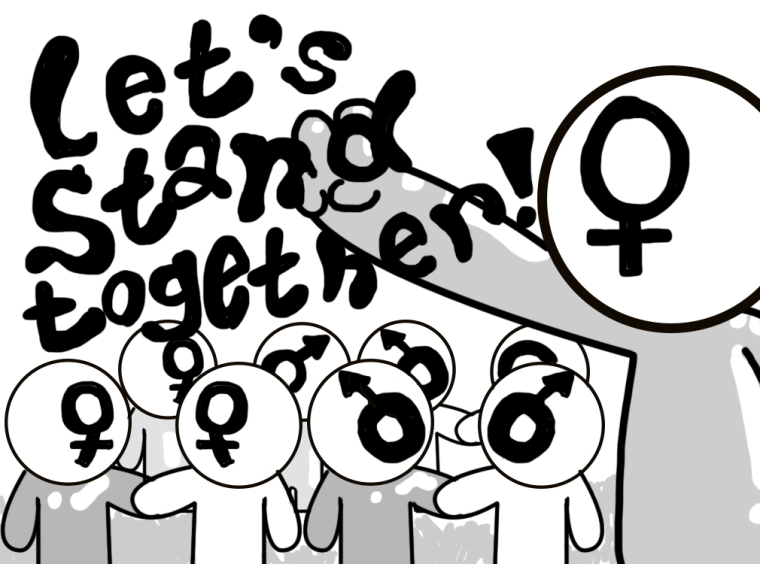On March 15, 2012, a group of Amendment One opponents marched from the N.C. State Bell Tower to the General Assembly building. The “Ides of Love” marchers wanted to “show our state and our nation that the people of North Carolina do not support amending our Constitution with this ban, and that we will virulently defend the right for a union to be recognized by the state,” according to the event’s Facebook page. More than 1,000 people RSVP’d as “going” on Facebook.
But despite the efforts of Ides of Love marchers and other gay marriage advocates, Amendment One passed with 61.04 percent of the vote in May 2012, thereby defining marriage in North Carolina as solely between a man and a woman.
Although the votes for Amendment One have long been counted, Technician would like to remind our readers that the issue of gay marriage is still up for debate — last month, the Supreme Court took on two cases related to gay marriage.
And though the support for marriage equality in North Carolina has become less pervasive after the passing of Amendment One, gay marriage activism is still occurring and we’d like to recognize those who are making it happen.
One of the most controversial actions involves the Green Street United Methodist Church in Winston-Salem. In March, the church released a statement saying its Leadership Council has asked its pastor to stop conducting wedding ceremonies for straight couples “until the [United Methodist Church] lifts its ban for same sex couples.” Instead of marriage ceremonies, the church’s Leadership Council has asked its pastor to conduct relationship blessings. By prohibiting all marriages in its sanctuary, Green Street is refusing to enforce marriage inequality.
Saturday, in a ceremony Zachary Howell described as “a little bit grandiose,” UNC-Chapel Hill’s Carolina Inn hosted the marriage of Howell to his partner, Garrett Hall. The couple, who attended UNC-CH together, was legally wed April 1 in New York, one of only nine states to allow same-sex marriage. Erin McLean, the couple’s wedding planner, said this was the first same-sex wedding held in Carolina Inn.
Hall’s mother said it was difficult to “spend revenue in a state that is still backward in that way,” but her son felt the state’s opinion on gay marriage made it even more imperative that the ceremony take place in North Carolina.
“It’s important to us to be on campus and to be visible, because I think with Amendment One, a lot of people are inclined to go back in the closet or to keep their relationship a secret,” Hall said.
The Campaign for Southern Equality, founded in 2011 and based in Asheville, advocates for marriage equality through its “We Do” campaign. Homosexual couples living in the south request marriage licenses, knowing they will be denied, in order to “call for full equality under federal law and to resist unjust state laws,” according to its website.
The Technician editorial board continues to support gay marriage and would like to commend those who have made the sometimes unpopular decision to stand up for marriage equality. While the federal government still does not recognize same-sex marriage, marriage equality activism has clearly impacted Americans. In 1996, a Gallup Poll found that 68 percent of Americans oppose same-sex marriage. This number decreased to 48 percent in 2012. It is likely that the support for homosexual marriage will continue to increase. We hope the support for gay rights will become ubiquitous so that in our lifetime, we can see people like Howell and Hall get married in churches like Green Street and watch the state we love accept their marriage license applications.
Send your thoughts to editor@technicianonline.com




